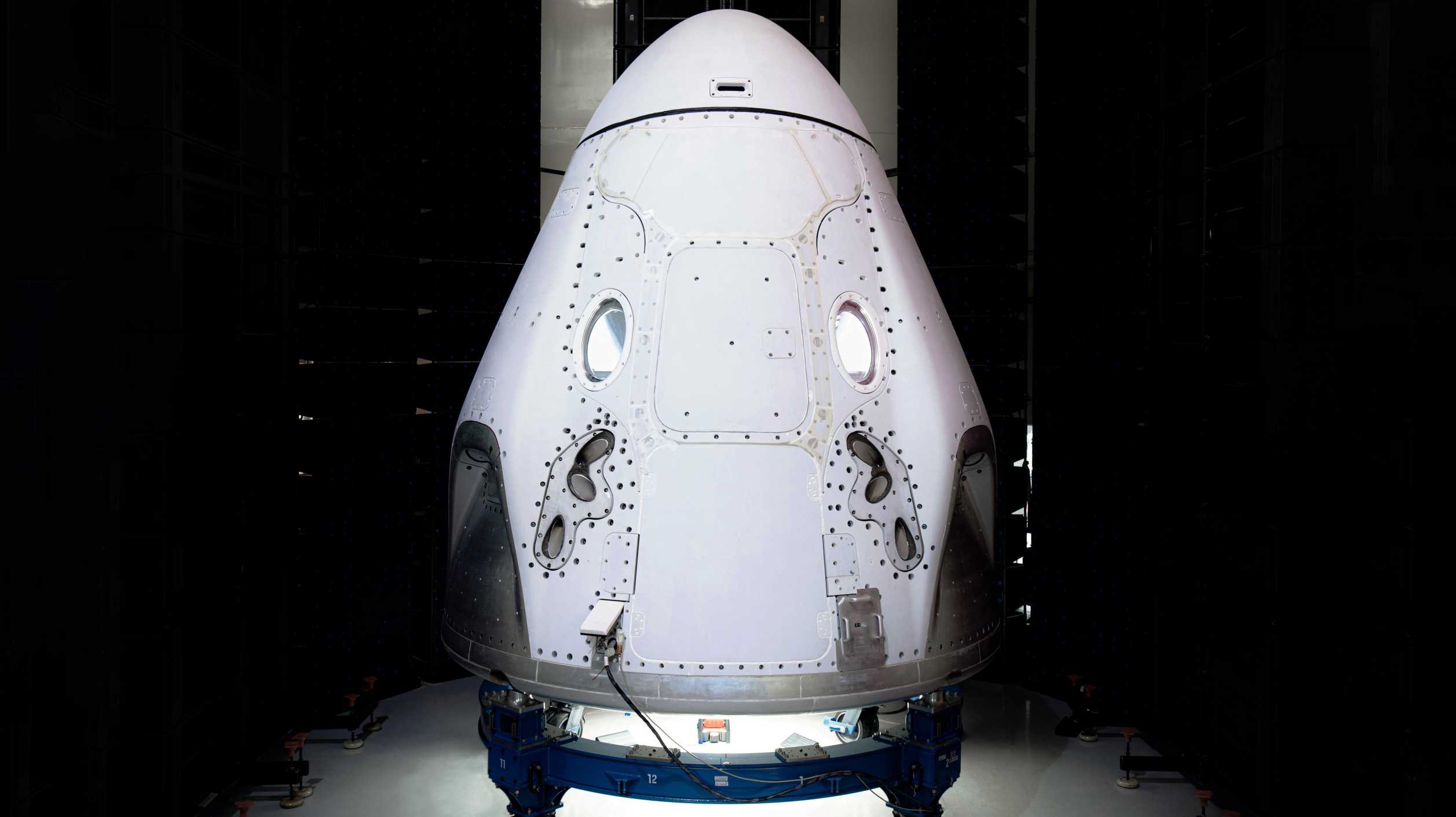
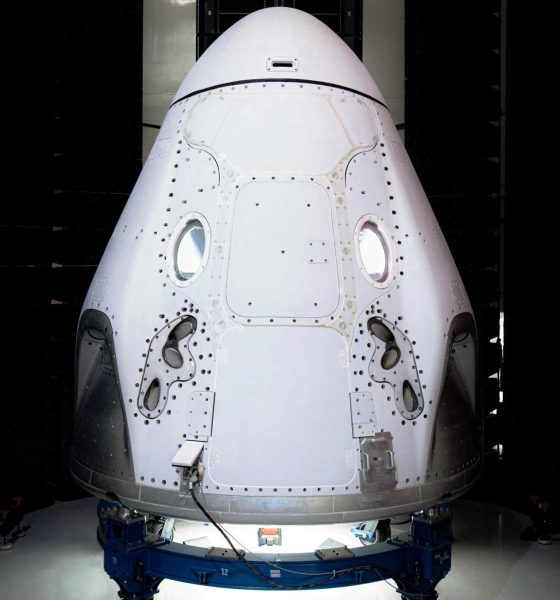
News
NASA is training SpaceX's first Crew Dragon astronauts for a much longer mission in space
NASA has revealed that the astronauts assigned to SpaceX’s Crew Dragon astronaut launch debut are training for a space station mission many times longer than initially planned.
Scheduled to deliver two NASA astronauts to and from the International Space Station (ISS) no earlier than (NET) late-April or May 2020, Crew Dragon’s Demo-2 mission will be the first crewed launch in SpaceX’s 18-year history. As previously noted on Teslarati (and by NASA itself, briefly), Demo-2 will also mark the first time in history that a privately-built spacecraft attempts to launch humans into orbit.
Still, NASA has funded the development of Crew Dragon (and competitor Boeing’s Starliner) not to achieve firsts but to restore the United States’ ability to launch its own astronauts to the ISS. Along those lines, both Crew Dragon (Demo-2) and Starliner’s (CFT) astronaut test flights were nominally designed to last about a week or two before returning NASA’s astronauts to Earth – a full end-to-end test for both extraordinarily complex vehicles. Two weeks, however, is simply not long enough for those astronauts to practically serve as full members of space station crew, something the ISS generally requires. In response, NASA has been seriously considering extending Boeing’s crewed test flight and has just recently suggested that SpaceX’s own Demo-2 test flight will be similarly upgraded.
About a month ago, SpaceX and NASA talked openly about the possibility of a longer-duration Crew Dragon astronaut launch debut for the first time, potentially extending the amount of time those astronauts are able to spend at the space station from about one week up to 1.5-3 months. This would allow Crew Dragon’s Demo-2 NASA astronauts – Bob Behnken and Doug Hurley – to serve as full members of the ISS crew, expanding the US presence from one to three astronauts.
Ars Technica’s Eric Berger offered some additional details about what exactly NASA might task Behnken and Hurley with on an extended flight earlier this month. Most importantly, the space agency wants the former astronaut – a Space Shuttle and extra-vehicular activity (EVA) veteran – to be (re)trained for spacewalks, allowing him to support an ever-growing to-do list of critical space station repairs and upgrades.
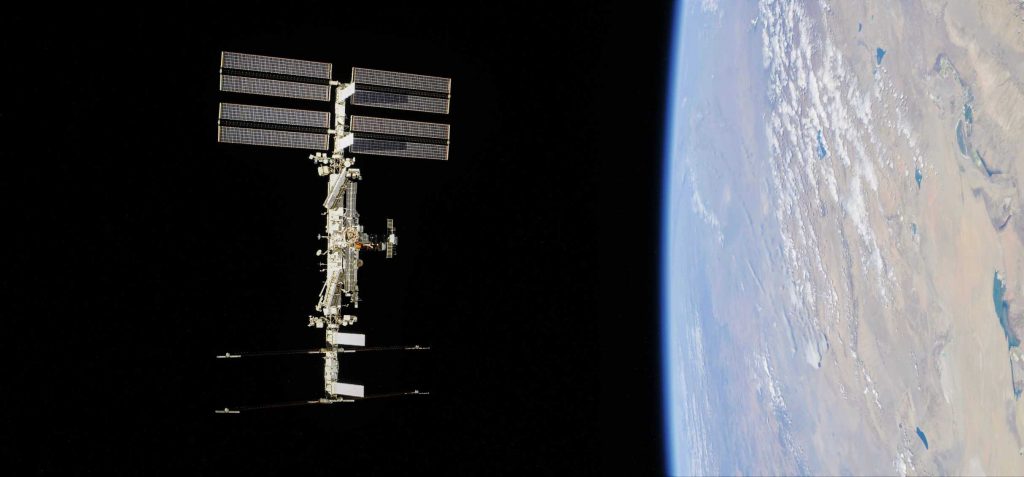
In effect, extending Crew Dragon’s astronaut flight test will make it almost identical to an “operational” flight where Crew Dragon ferries astronauts to the space station, docks for about six months, and finally returns the same astronauts to Earth at the end of its mission. More importantly, though, NASA’s decision to extend Commercial Crew Program (CCP) test flights – kickstarted with Boeing’s beleaguered Starliner spacecraft – is motivated by a desire to prevent the United States’ presence on the space station from dwindling or even regressing to zero in the near future.
Triggered by years of SpaceX and Boeing delays, NASA will now likely have to purchase more seats on Russian Soyuz launches if it wishes to maintain an full, uninterrupted presence on ISS for the next 12-24 months. After suffering numerous deeply concerning software failures on its first and only orbital launch, Boeing’s Starliner is unlikely to be ready to launch crew anytime soon. At the same time, although SpaceX is closer to its astronaut launch debut than ever before, it’s highly unlikely that Crew Dragon can singlehandedly support a full ISS complement of three NASA astronauts while Starliner works out its issues.
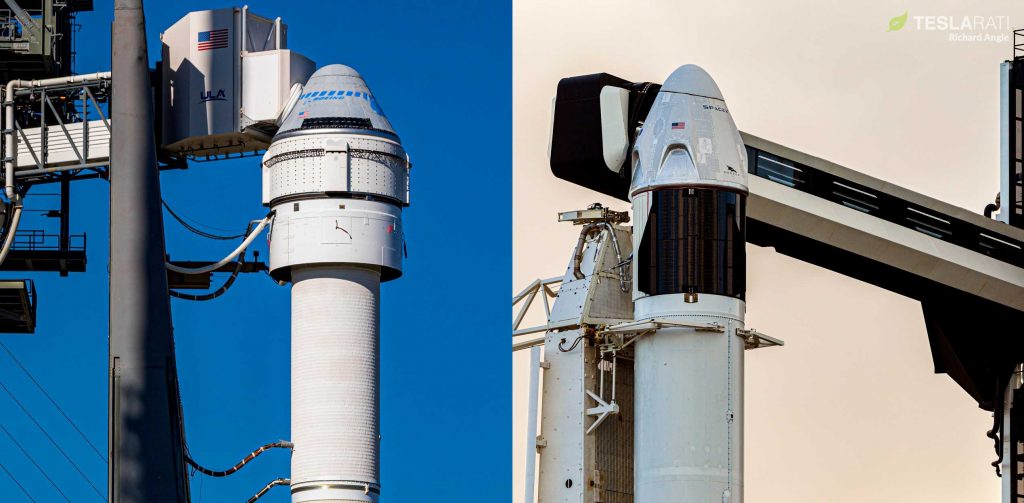
As such, NASA is looking everywhere it can to squeeze a bit more on-orbit time out of existing astronaut missions scheduled in the next year or so, and both Starliner and Crew Dragon’s test flights – barring showstoppers – are excellent opportunities. With NASA Johnson Space Center’s confirmation that both Behnken and Hurley are already deep into the extra training needed for an extended flight, chances are good that both astronauts will be ready for a one- or several-month mission by the time that NASA and SpaceX are ready and willing to launch.
Check out Teslarati’s Marketplace! We offer Tesla accessories, including for the Tesla Cybertruck and Tesla Model 3.

Cybertruck
Tesla set to activate long-awaited Cybertruck feature
Tesla will officially activate the Active Noise Cancellation (ANC) feature on Cybertruck soon, as the company has officially added the feature to its list of features by trim on its website.
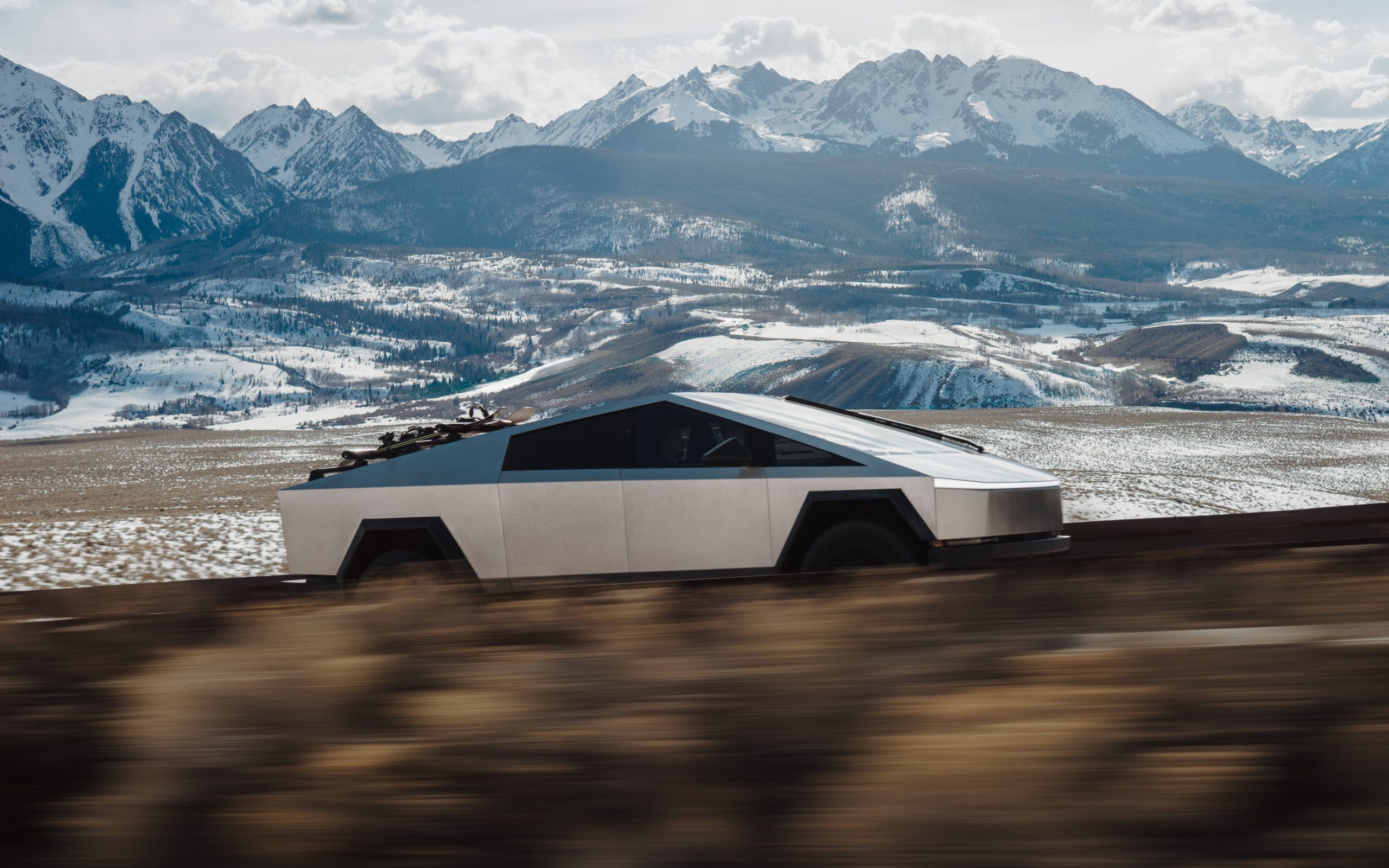
Tesla is set to activate a long-awaited Cybertruck feature, and no matter when you bought your all-electric pickup, it has the hardware capable of achieving what it is designed to do.
Tesla simply has to flip the switch, and it plans to do so in the near future.
Tesla will officially activate the Active Noise Cancellation (ANC) feature on Cybertruck soon, according to Not a Tesla App, as the company has officially added the feature to its list of features by trim on its website.
Tesla rolls out Active Road Noise Reduction for new Model S and Model X
The ANC feature suddenly appeared on the spec sheet for the Premium All-Wheel-Drive and Cyberbeast trims, which are the two configurations that have been delivered since November 2023.
However, those trims have both had the ANC disabled, and although they are found in the Model S and Model X, and are active in those vehicles, Tesla is planning to activate them.
In Tesla’s Service Toolbox, it wrote:
“ANC software is not enabled on Cybertruck even though the hardware is installed.”
Tesla has utilized an ANC system in the Model S and Model X since 2021. The system uses microphones embedded in the front seat headrests to detect low-frequency road noise entering the cabin. It then generates anti-noise through phase-inverted sound waves to cancel out or reduce that noise, creating quieter zones, particularly around the vehicle’s front occupants.
The Model S and Model X utilize six microphones to achieve this noise cancellation, while the Cybertruck has just four.
Tesla Cybertruck Dual Motor AWD estimated delivery slips to early fall 2026
As previously mentioned, this will be activated through a software update, as the hardware is already available within Cybertruck and can simply be activated at Tesla’s leisure.
The delays in activating the system are likely due to Tesla Cybertruck’s unique design, which is unlike anything before. In the Model S and Model X, Tesla did not have to do too much, but the Cybertruck has heavier all-terrain tires and potentially issues from the aluminum castings that make up the vehicle’s chassis, which are probably presenting some challenges.
Unfortunately, this feature will not be available on the new Dual Motor All-Wheel-Drive configuration, which was released last week.
News
Tesla Model S and X customization options begin to thin as their closure nears
Tesla’s Online Design Studio for both vehicles now shows the first color option to be listed as “Sold Out,” as Lunar Silver is officially no longer available for the Model S or Model X. This color is exclusive to these cars and not available on the Model S or Model X.
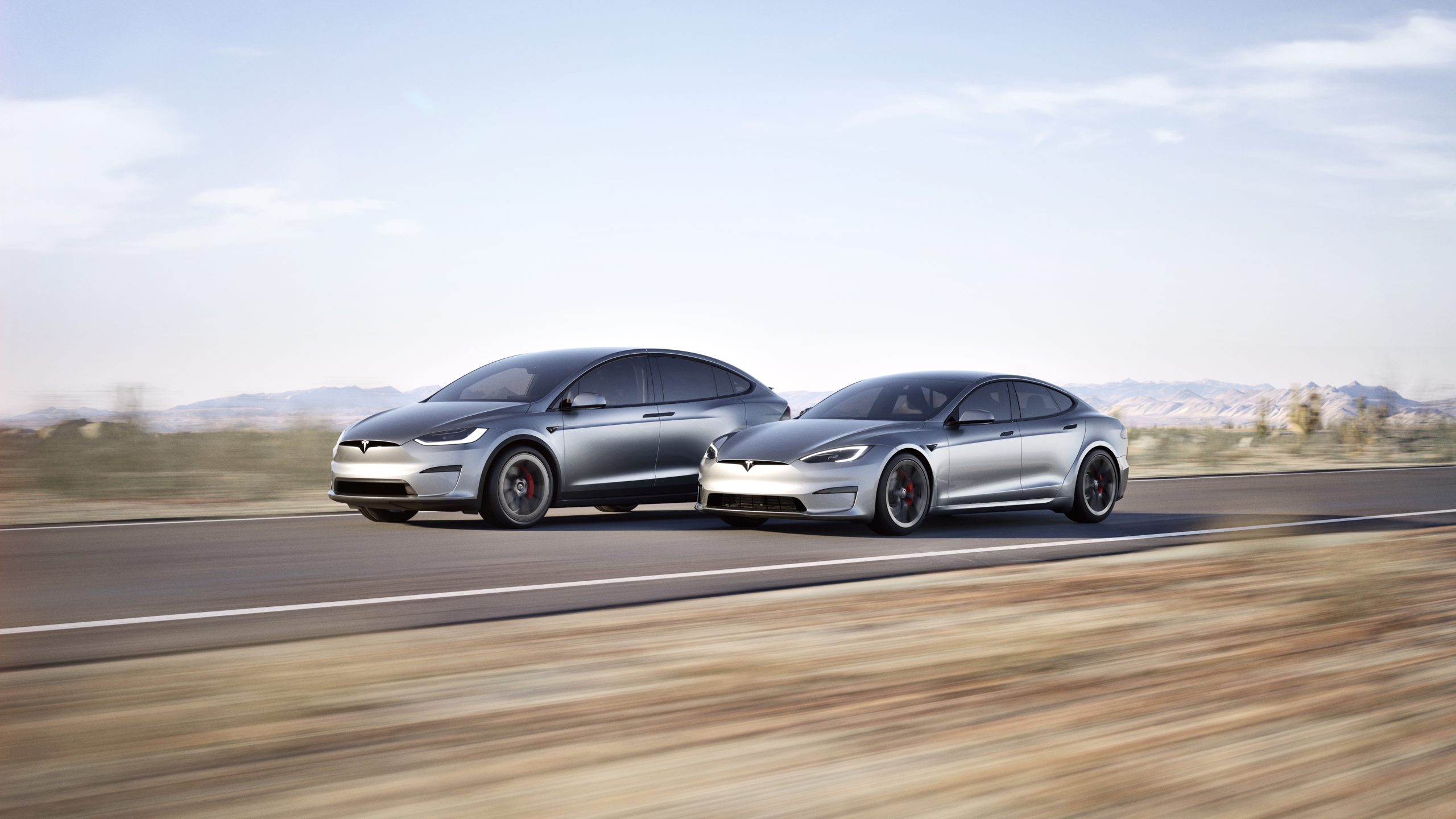
Tesla Model S and Model X customization options are beginning to thin for the first time as the closure of the two “sentimental” vehicles nears.
We are officially seeing the first options disappear as Tesla begins to work toward ending production of the two cars and the options that are available to those vehicles specifically.
Tesla’s Online Design Studio for both vehicles now shows the first color option to be listed as “Sold Out,” as Lunar Silver is officially no longer available for the Model S or Model X. This color is exclusive to these cars and not available on the Model S or Model X.
🚨 Tesla Model S and Model X availability is thinning, as Tesla has officially shown that the Lunar Silver color option on both vehicles is officially sold out
To be fair, Frost Blue is still available so no need to freak out pic.twitter.com/YnwsDbsFOv
— TESLARATI (@Teslarati) February 25, 2026
Tesla is making way for the Optimus humanoid robot project at the Fremont Factory, where the Model S and Model X are produced. The two cars are low-volume models and do not contribute more than a few percent to Tesla’s yearly delivery figures.
With CEO Elon Musk confirming that the Model S and Model X would officially be phased out at the end of the quarter, some of the options are being thinned out.
This is an expected move considering Tesla’s plans for the two vehicles, as it will make for an easier process of transitioning that portion of the Fremont plant to cater to Optimus manufacturing. Additionally, this is likely one of the least popular colors, and Tesla is choosing to only keep around what it is seeing routine demand for.
During the Q4 Earnings Call in January, Musk confirmed the end of the Model S and Model X:
“It is time to bring the Model S and Model X programs to an end with an honorable discharge. It is time to bring the S/X programs to an end. It’s part of our overall shift to an autonomous future.”
Fremont will now build one million Optimus units per year as production is ramped.
News
Tesla Cybertruck Dual Motor AWD estimated delivery slips to early fall 2026
Tesla has also added a note on the Cybertruck design page stating that the vehicle’s price will increase after February 28.
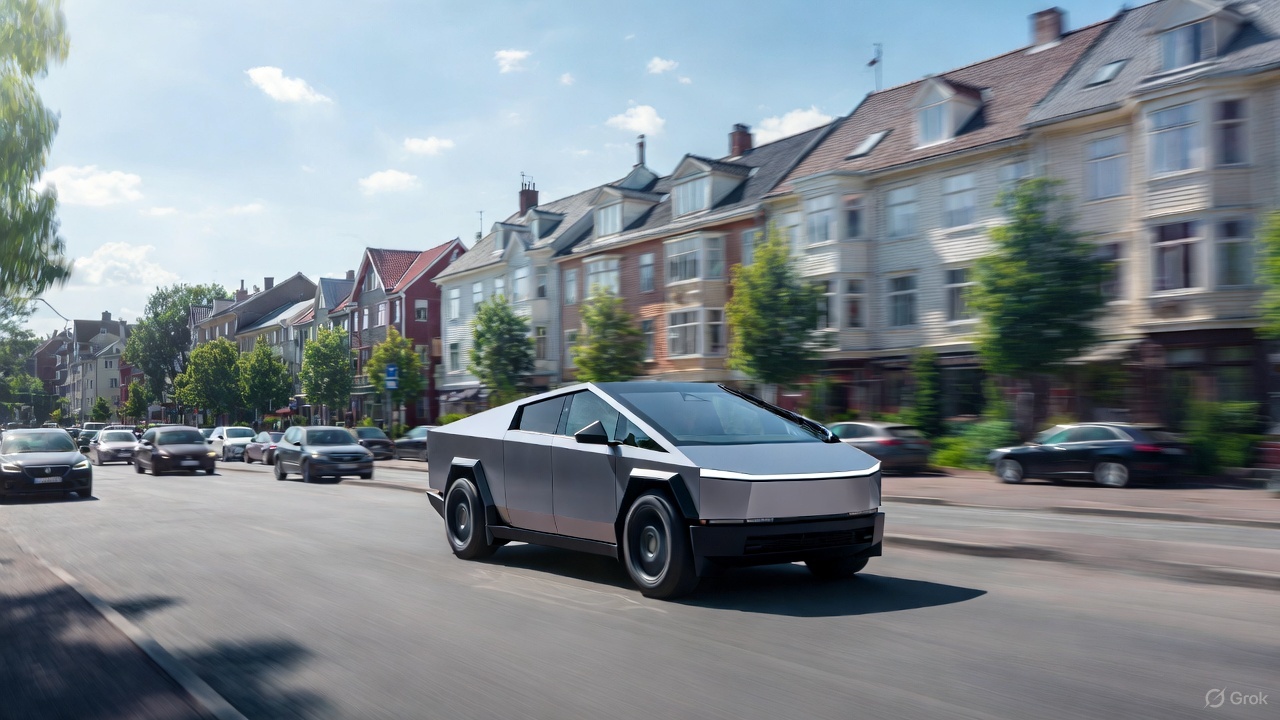
Tesla’s estimated delivery window for new Cybertruck Dual Motor All-Wheel Drive (AWD) orders in the United States has shifted to September–October 2026. This suggests that the vehicle’s sub-$60,000 variant is now effectively sold out until then.
The updated timeline was highlighted in a post on X by Tesla watcher Sawyer Merritt, who noted that the estimated delivery window had moved from June 2026 to September-October 2026, “presumably due to strong demand.”
The Dual Motor AWD currently starts at $59,990 before incentives. Tesla has also added a note on the Cybertruck design page stating that the vehicle’s price will increase after February 28.
If demand remains steady, the combination of a later delivery window and a pending price increase suggests Tesla is seeing sustained interest in the newly-introduced Cybertruck configuration. This was highlighted by Elon Musk on X, when he noted that the Cybertruck Dual Motor AWD’s introductory price will only be available for a limited time.
When the Cybertruck was first unveiled in November 2019, Tesla listed the Dual Motor AWD variant at $49,990. Adjusted for inflation, that figure equates to roughly $63,000 in 2026 dollars, based on cumulative U.S. inflation since 2019.
That context makes a potential post-February price in the $64,000 to $65,000 range less surprising, especially as material, labor, and manufacturing costs have shifted significantly over the past several years.
While Tesla has not announced a specific new MSRP, the updated delivery timeline and pricing note together suggest that the Cybertruck Dual Motor AWD could very well be the variant that takes the all-electric full-sized pickup truck to more widespread adoption.








